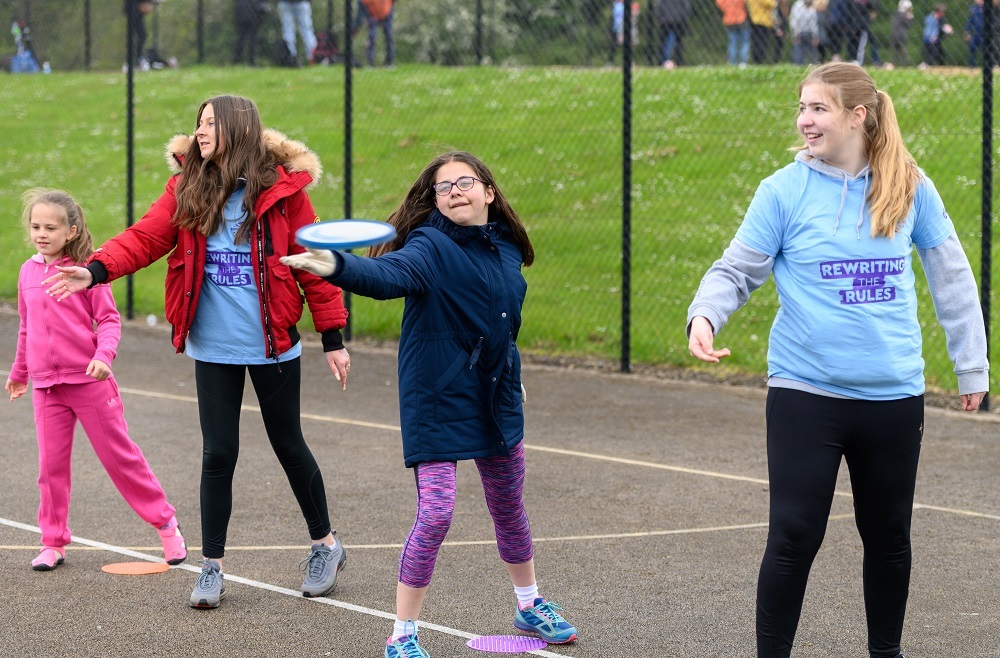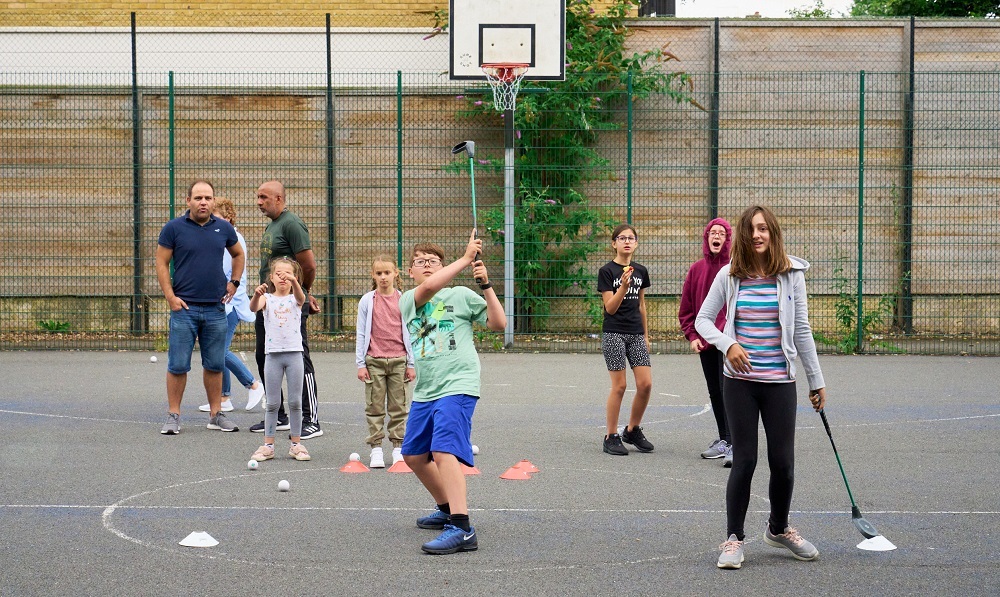Your Active Voice
Take our survey for the Lincolnshire sport and physical activity sector

For Children's Mental Health Week, Greg Brown, Children and Young Person Lead at Active Lincolnshire, writes about the importance of sport and physical activity in promoting good mental health for children and young people and takes a look at some in school projects that aim to boost mental health through being active.
Every child and young person has the right to be active, benefit from a safe environment, and have equal opportunities to reach their potential. Positive experiences in movement, sport and physical activity at an early age lay the foundation for an active life.
Sport and physical activity has the potential to greatly benefit mental and physical well-being. Various research and studies indicate that engaging in regular physical activity can reduce symptoms of anxiety and depression and also lead to an improvement of self-esteem. For children, these benefits are even more profound, considering the increasing rates of obesity and mental health issues among young individuals. According to the most recent data from the National Child Weight Management Programme, 23% of 4-5 year olds are classed as overweight or obese and 37% of 10-11 year olds are overweight or obese. We also know that 1 in 5 children have a probable mental health condition which makes the support offered by Place2Be, the children and young people’s mental health charity, even more vital in todays world.
During school hours unfortunately only 43.1% of children are active for at least 30 minutes during the school day compared to 59.4% outside of the school day (Children and Young People Active Lives Survey 22/23). Teachers play a vital role in supporting the mental health of young people.
A survey conducted by the Youth Sport Trust and Teacher Tapp revealed that 97% of teachers are concerned about the mental health of their students. What is promising though that the same percentage (YST PE School Report 2023) recognises that sport and play can support with children and young people’s wellbeing. The increasing number of children needing treatment for mental health problems emphasises the need for intervention and support. It is essential to provide resources, training, and guidance to teachers to effectively address mental health concerns.
Fortunately, resources, programmes and support are offered through the Youth Sport Trust. Examples of these include Boys Move which is a professional development programme that aims to equip educators with everything they need to address the mental health and behavioural issues of adolescent boys. Girls Active aims to tackle the barriers girls face in accessing positive experiences through sport and physical activity.

The Golf Foundation offer an interesting and innovative way of supporting children’s mental health through their Unleash Your Drive Programme. Working with schools, youth clubs and golf clubs, along with many youth clubs and golf clubs, along with many youth-centred organisations, they became increasingly concerned about the worrying decline in young people’s mental health. The Unleash Your Drive Programme, which is now available to schools, was their response to this issue:
“Using adapted Golfway equipment, the online training for teachers and the six lesson plans built around fun games and activities, we teach nine mental toughness tools and golf skills. These tools directly contribute to the overall wellbeing of children, providing valuable life skills that extend beyond the lesson and into wider school and wider life. These nine tools include breathing exercises to ‘control the fizz inside’, positive self-reflection skills such as ‘What went well/Even better if’, and methods of focusing on the task in hand using the ‘square of concentration’. It’s about having a measured impact on children. Schools see that these tools are vital for all children but also as a good intervention for those children who need them most. The simple self-assessment allows schools to measure the impact of the programme on pupils on their mental toughness tool understanding and overall wellbeing”.
Andy Leigh, The Golf Foundation
It is crucial to address gender inequalities in sport and physical activity. According to the Active Lives Children and Young People Survey 22/23, nationally only 21% of secondary school-age girls feel confident when exercising or playing sports, compared to 41% of boys. When we compare this to Lincolnshire responses, worryingly only 19% of girls and 37% of secondary aged girls feel confident when taking part in sport and physical activity. This is why initiatives like Studio You, which aim to build resilience and develop confidence for secondary school-age girls are needed more than ever. The best part, this fun, inclusive resource is free to access.
Another fantastic example of a programme that aims to develop girl’s self-esteem and self-confidence is the M2 Programme. M2 is on a mission to reverse the downward trend of declining confidence, heightened anxiety, self-esteem challenges, and decreasing physical activity levels among girls. Active Lincolnshire were fortunate to collaborate with M2 last academic year (22-23) to support five primary schools in offering a targeted intervention to support their KS2 girls needing it the most. We are proud to say we will be continuing our support to Lincolnshire based primary schools by continuing to work with M2. You can read a more in-depth breakdown and see quotes from the children and teachers that took part in the programme here: Empowering Girls through M2: Uniting Movement and Mindfulness.
Promoting children and young people's mental health through sport and physical activity is crucial. By creating positive and inclusive environments, providing support and intervention and addressing gender disparities, we can help children and young people develop healthy physical activity habits and improve their overall well-being. It is pivotal that we take a collaborative approach to ensure that every child has the opportunity to thrive both mentally and physically.